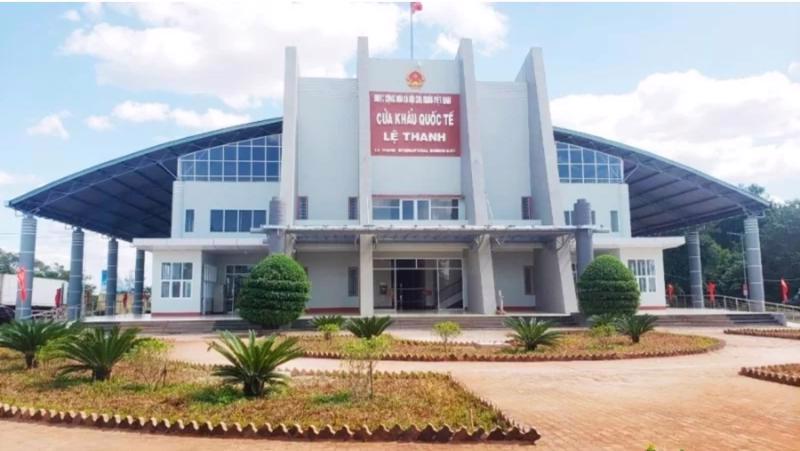The Ministry of Construction recently held a conference to evaluate the master plan for the development of the Le Thanh International Border Gate Economic Zone in Gia Lai province, projected to extend until 2045.
The primary objective is to transform Le Thanh into a dynamic economic zone for the locality.
According to the consulting unit, the Vietnam Institute for Urban and Rural Planning (VIUP), the planning area encompasses the entirety of Chu Ty town, along with the communes of Ia Kla, Ia Dom, Ia Nan, and Ia Pnon in Duc Co district, covering a total natural area of 415.15 sq.km.
The planning objectives aim to concretize the Planning for the Vietnam-Cambodia border region, the Planning for the Central Highlands, the Planning for the local socio-economic development and other specialized plans approved by the Prime Minister; leverage the potential and advantages of the western region of Gia Lai province; and develop the Le Thanh International Border Gate Economic Zone into a vibrant economic region of Gia Lai province.
The zone is designed as a multi-sector and multi-field comprehensive economic zone, which includes both a non-tariff zone (for processing, import-export, exhibitions, product introductions, etc.) and a tariff zone (covering industry, urban areas, tourism services, and logistics centers). It will serve as a trading hub for the western region of Gia Lai province and the Central Highlands, facilitating trade with Cambodia, Laos, Myanmar, and Thailand. This economic zone is expected to be a driving force for economic development in the western region of Gia Lai province, focusing on cross-border trade and import-export activities, and acting as a gateway to and from northeastern Cambodia and the Central Highlands to Quy Nhon seaport.
It is projected that the population of the Le Thanh International Border Gate Economic Zone will reach approximately 50,000 to 55,000 people by 2030, and 75,000 to 90,000 people by 2045.









 Google translate
Google translate